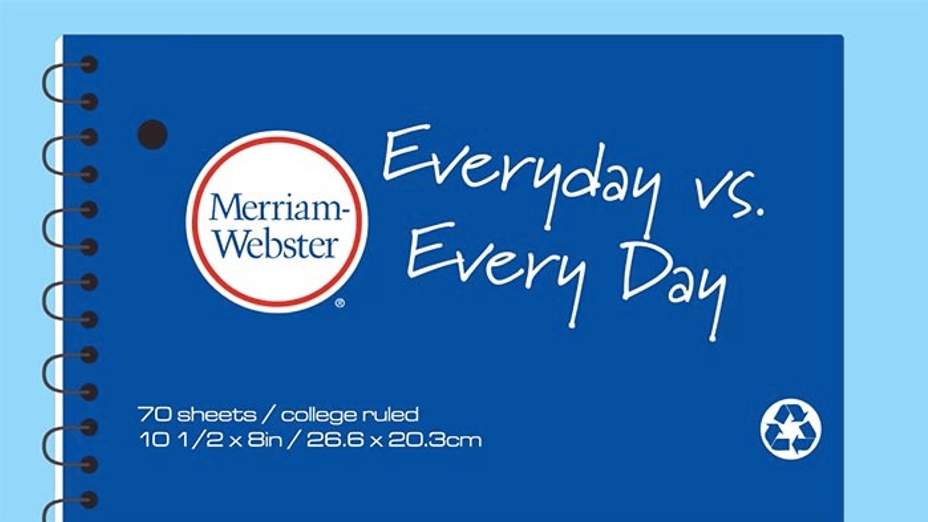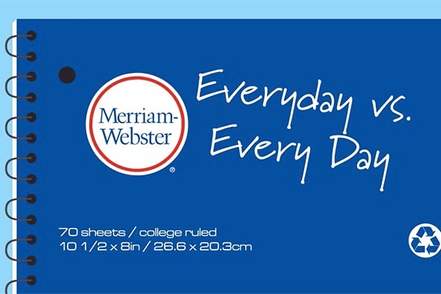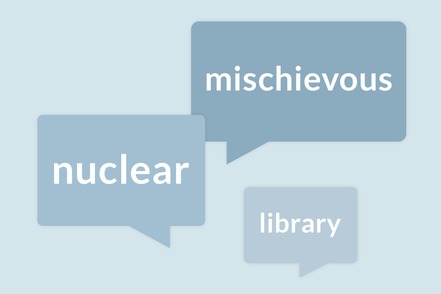Commonly Confused
They're two of the most-confused words in English. Here's a simple method to sort them out.
Transcript
The choice between everyday, one word, and every day, two words, depends on how it's used. Everyday, one word, is an adjective meaning "used or seen daily," or "ordinary." "The phone calls were an everyday occurrence." Every day, two words, is an adverb phrase meaning "daily" or "every weekday." "They go to the coffee shop every day." One trick to remember which is which is to see if you can put another word between "every" and "day," as in "every single day." If you can, you want the two-word adverb.











